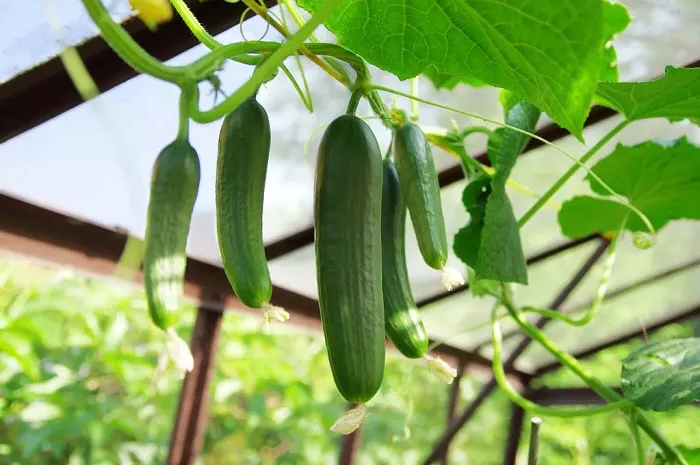Cucumber growers are being urged to closely monitor weather forecasts this June, according to experts. One crucial task needs to be completed once temperatures rise.
Cultivating cucumbers can be a highly rewarding endeavor. These fresh-tasting fruits are rich in vitamin K, which aids in blood clotting and wound healing. They also contain important minerals such as calcium and phosphorus. Moreover, cucumbers are highly versatile and can be used in various dishes, from salads to refreshing sandwiches.
However, since cucumbers are native to India and are accustomed to warmer temperatures, UK gardeners need to be cautious about when to plant them outdoors. If you have been growing cucumbers from seed, you likely started them in a heated greenhouse or a similar structure like a polytunnel, or you may have purchased them from a garden center.
According to the Royal Horticultural Society (RHS), certain conditions must be met before sowing cucumbers outside. They advise against planting them outdoors until the average temperature reaches 12°C. The RHS states, “Harden off seedlings carefully to acclimatize them to outdoor conditions before planting out from early June onwards, once your local temperatures are reliably above 12°C (53°F).”
Waiting until temperatures average above 12°C is essential because prolonged exposure to cold temperatures can damage the fruit, leading to decay and pitting, which can cause irreversible harm. The RHS also recommends hardening off the seedlings before transplanting them. Hardening off is a process where seedlings are gradually introduced to harsher conditions like direct sunlight and droughts to reduce the stress caused by sudden changes in humidity, light, and temperature.
When planting cucumbers outside, place one cucumber plant in the center of each prepared growing site, spaced 30cm apart, and water them well. It is also crucial to water cucumbers frequently after planting, as they require about one to two inches of water per week. This amount may need to increase during hot spells. Insufficient water can cause wilting or stunted growth and may result in a bitter taste in the fruit, making it unsuitable for most popular dishes.


